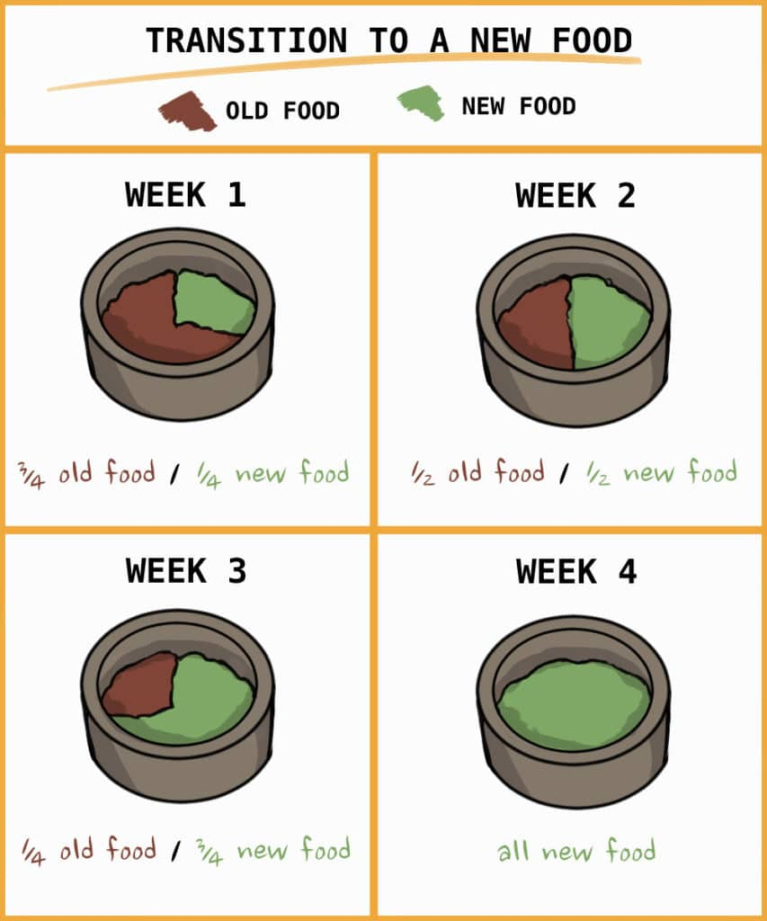How Much Pellets to Feed a Baby Rabbit?
Feeding baby rabbits can be a delicate task, as they have specific dietary requirements to ensure their growth and development. One of the key components of a baby rabbit’s diet is pellets. In this article, we will discuss how much pellets to feed a baby rabbit, providing you with guidelines to ensure optimal health and nutrition.

Feeding Guidelines
When it comes to feeding baby rabbits, it is important to remember that their diet should primarily consist of their mother’s milk until they are around 8 weeks old. However, introducing pellets gradually after the age of 2 weeks can help in their transition to solid food. Here are some feeding guidelines to consider:
- Age 2-3 weeks: Start feeding a small amount of pellets, about 1 tablespoon per day, along with unlimited access to their mother’s milk.
- Age 4-7 weeks: Increase the amount of pellets gradually, aiming for about 2 tablespoons per day.
- Age 8 weeks and above: At this stage, baby rabbits can be weaned off their mother’s milk and rely solely on pellets. Provide approximately 1/4 cup of pellets per day.
Importance of Gradual Transition
It is crucial to introduce pellets gradually to baby rabbits, as their delicate digestive systems need time to adjust to solid food. Rapid dietary changes can lead to digestive issues like diarrhea or bloating, which can be harmful to their health. By gradually increasing the amount of pellets over time, you allow their bodies to adapt and avoid potential problems.
Quality of Pellets
When choosing pellets for your baby rabbit, it is important to look for high-quality options specifically formulated for young rabbits. These pellets should be rich in essential nutrients, such as fiber, protein, and vitamins. Avoid pellets with excessive amounts of grains or fillers, as they may not provide the necessary nutritional value for your baby rabbit’s development.
Monitoring Your Baby Rabbit’s Weight
As you start feeding pellets to your baby rabbit, it is essential to monitor their weight regularly. A healthy baby rabbit should gain weight steadily, indicating proper nutrition and growth. However, if you notice any sudden weight loss, it may be a sign that your baby rabbit is not receiving enough pellets or is facing other health issues. In such cases, consult a veterinarian for guidance.
FAQs
1. Can I feed my baby rabbit pellets before they are 2 weeks old?
No, it is not recommended to introduce pellets to baby rabbits before the age of 2 weeks. During this period, their digestive systems are not yet fully developed, and they rely solely on their mother’s milk for nutrition.
2. Can I feed my baby rabbit unlimited pellets?
No, providing unlimited pellets to your baby rabbit can lead to overeating and weight-related health issues. It is important to follow the feeding guidelines mentioned above to ensure a balanced diet and healthy growth.
3. Should I provide any other food alongside pellets?
While pellets should be the primary component of a baby rabbit’s diet, you can gradually introduce fresh hay and vegetables once they are around 12 weeks old. These additional food items provide essential fiber and nutrients to support their overall health.
4. How often should I feed my baby rabbit pellets?
For baby rabbits under 8 weeks old, it is recommended to divide the daily pellet portion into multiple small meals throughout the day. This helps mimic their natural feeding pattern and aids in proper digestion. Once they are 8 weeks old, you can provide pellets once a day.
Remember, every rabbit is unique, and their dietary needs may vary. It is always advisable to consult a veterinarian for personalized advice regarding feeding and nutrition.
In conclusion, feeding baby rabbits the right amount of pellets is crucial for their growth and development. Gradually introducing pellets, monitoring their weight, and choosing high-quality options are key factors in ensuring their optimal health. By following the feeding guidelines provided, you can help your baby rabbit thrive and lead a happy, healthy life.
Related Articles…
Copyright Notice:
All images featured on this site are sourced from the internet, copyrights belong to respective owners. Should you own any image and require it to be removed, please contact us.